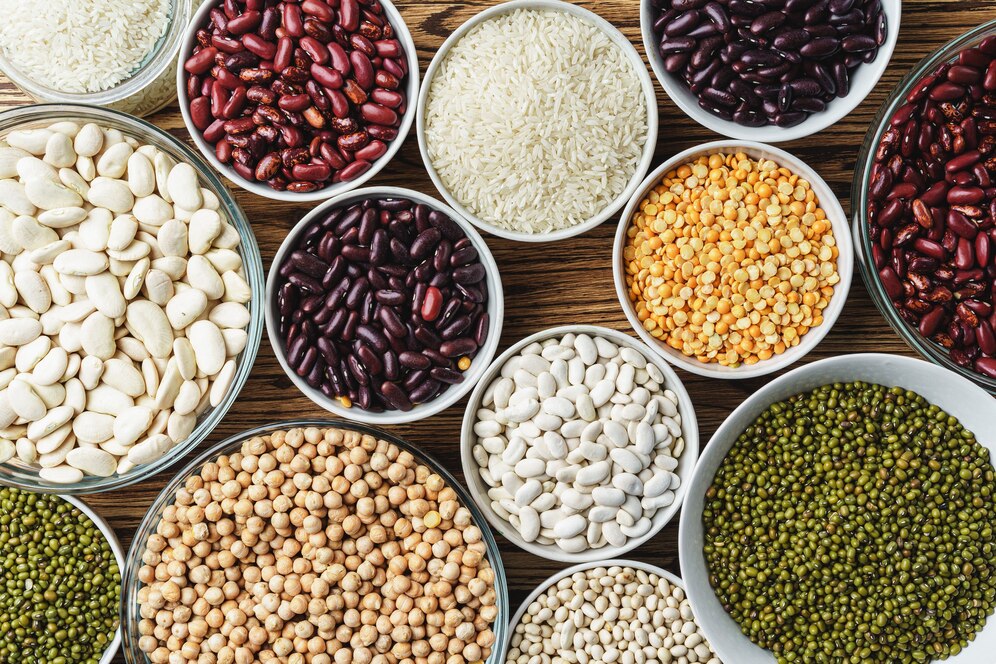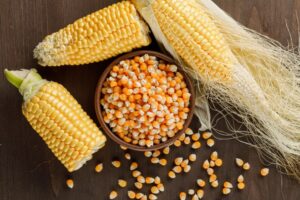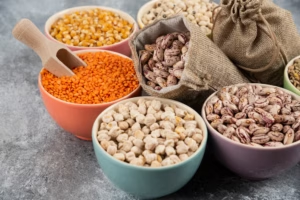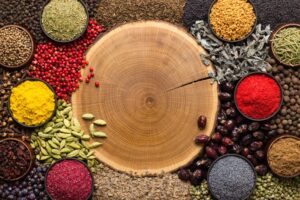Beans have long been recognized as a dietary staple around the world, valued for their remarkable ability to provide essential nutrition while supporting environmental sustainability. From ancient civilizations to modern plant-based diets, beans have earned their place as a versatile superfood, offering a wide range of health benefits, flavors, and cultural significance. Whether served in hearty soups, tossed in salads, or blended into dips, beans are an essential ingredient that crosses cultural boundaries and nourishes both the body and the planet.
In this blog post, we will explore why beans are a nutritional powerhouse, their environmental benefits, and how they enrich global culinary traditions, all while offering a satisfying and sustainable solution for those seeking healthy and eco-friendly meals.
The Nutritional Power of Beans: Protein, Fiber, and More
Beans are a nutrient-dense food that provides an impressive array of vitamins, minerals, and macronutrients. They are especially prized for their high protein content, making them a vital protein source in plant-based diets. One cup of cooked beans provides about 15 grams of protein, which is essential for building muscle, repairing tissues, and supporting a healthy immune system.
For those who follow vegetarian, vegan, or plant-based diets, beans serve as an excellent alternative to animal protein. Unlike many other plant-based proteins, beans provide a complete source of protein when combined with other grains like rice or quinoa, ensuring that all essential amino acids are present in the diet.
In addition to protein, beans are an excellent source of dietary fiber, which aids in digestion and supports gut health. Fiber also helps regulate blood sugar levels, making beans a great choice for individuals with diabetes or those looking to maintain healthy blood sugar levels. The high fiber content of beans also contributes to feelings of fullness, making them an ideal food for weight management.
Beans are rich in essential vitamins and minerals as well. For example, they are packed with iron, which is vital for red blood cell production and preventing iron-deficiency anemia. Magnesium, found in beans, supports muscle and nerve function, while potassium helps maintain proper fluid balance and regulate blood pressure. Beans also contain folate, which is important for DNA synthesis and the prevention of birth defects during pregnancy.
Sustainability: Beans and Their Positive Environmental Impact
In an era of growing concern over climate change and sustainability, beans offer an eco-friendly alternative to many animal-based food sources. Producing beans requires fewer resources than raising livestock, which can be resource-intensive, contributing to deforestation, water depletion, and greenhouse gas emissions.
One of the most significant environmental benefits of beans is their ability to grow with minimal water compared to animal farming. For instance, legumes like chickpeas, lentils, and kidney beans thrive in dry climates and require less water to grow than many other crops. This makes them a viable and sustainable crop for regions experiencing water scarcity or drought conditions.
Beans also play a key role in improving soil health. As nitrogen-fixing plants, beans have the unique ability to convert nitrogen from the air into a form that plants can use. This reduces the need for synthetic fertilizers, which are often harmful to the environment and contribute to soil degradation. By rotating beans with other crops, farmers can enhance soil fertility, promote sustainable farming practices, and reduce their reliance on chemical inputs.
Moreover, beans generate fewer greenhouse gas emissions than livestock farming. Meat production, especially beef, is a major contributor to greenhouse gases such as methane, which significantly impacts global warming. In contrast, plant-based foods like beans have a much smaller carbon footprint, making them a crucial component of efforts to reduce greenhouse gas emissions and combat climate change.
By including beans in our diets, we can reduce our personal environmental impact and contribute to a more sustainable food system, which benefits both human health and the planet.
Beans Across Cultures: A Global Culinary Staple
Beans are an essential ingredient in the cuisines of countless cultures, and their adaptability and versatility have made them a cornerstone of global culinary traditions. From savory stews and soups to salads and curries, beans are used in a wide variety of dishes that span continents and cultures.
In Latin American cuisine, beans are a key component of many iconic dishes. Black beans, pinto beans, and kidney beans are often featured in staples such as burritos, tacos, and rice and beans. In countries like Brazil, beans are a central part of feijoada, a rich and hearty stew made with black beans and various meats. These dishes are flavorful, nutritious, and often serve as the heart of family meals.
In the Mediterranean and Middle East, beans are also widely used. Chickpeas, or garbanzo beans, are the star ingredient in dishes such as hummus, falafel, and shakshuka. In Greece, lentils are a key ingredient in soups like “fakes,” while in Turkey, beans are incorporated into stews and pilafs. The health benefits of beans are woven into the culinary fabric of these regions, where they are enjoyed as part of a balanced diet rich in vegetables, olive oil, and whole grains.
Asian cuisines have also embraced beans, with varieties like mung beans and soybeans being commonly used in savory and sweet dishes. In India, lentils (dal) are a staple, often cooked into flavorful curries and served with rice. The use of spices, such as turmeric, cumin, and coriander, enhances the natural flavors of beans and creates dishes that are both satisfying and health-promoting.
As global food systems become more interconnected, beans have found their way into modern fusion dishes, offering a nutritious and sustainable ingredient for innovative chefs. From bean-based plant burgers to gourmet bean salads, the flexibility of beans allows them to be incorporated into a wide range of contemporary recipes.
Conclusion: Beans—A Superfood for Health, Flavor, and Sustainability
Beans are much more than just a food source—they are a symbol of global culinary traditions, a sustainable agricultural practice, and a powerful health tool. Packed with protein, fiber, and essential vitamins and minerals, beans offer a wide range of health benefits, from improved digestion to better heart health. They are also a sustainable food choice, requiring fewer resources than animal products and helping to reduce greenhouse gas emissions and environmental degradation.
Across cultures, beans are celebrated for their versatility, flavor, and ability to enhance a variety of dishes. From traditional stews to modern plant-based recipes, beans are a global culinary staple that unites diverse food traditions.
By incorporating beans into our diets, we not only nourish our bodies but also contribute to a more sustainable, eco-friendly food system. Whether you’re a seasoned home cook or a beginner in the kitchen, beans are an easy, affordable, and nutritious addition to any meal. So the next time you sit down for a meal, remember that you’re enjoying more than just great taste—you’re nourishing yourself, supporting the environment, and connecting to cultures around the world through the humble bean.





